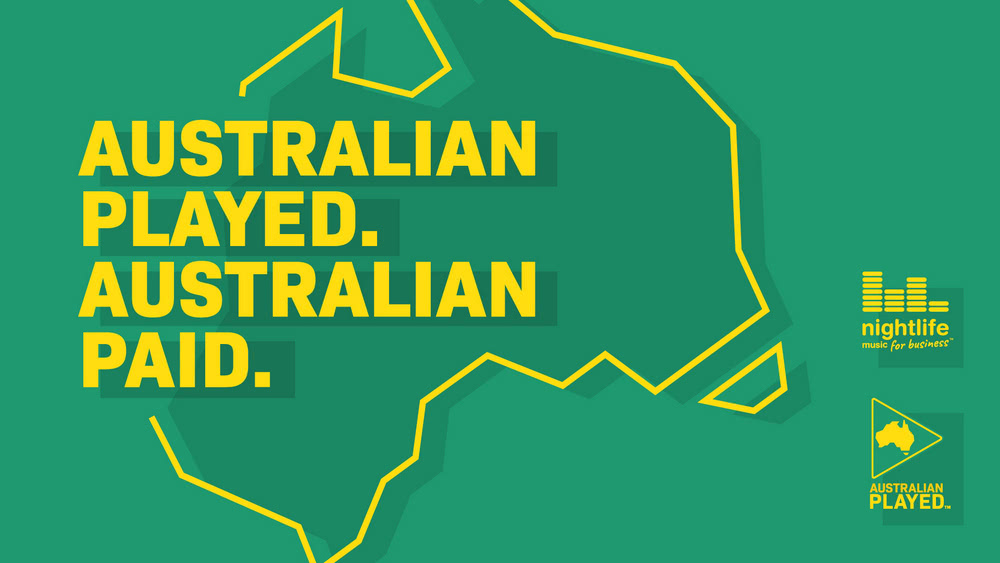Commercial Radio Australia, Nightlife Music front senate inquiry into Australian content

As the music community convened yesterday for the start of Bigsound, executives from Commercial Radio Australia, Nightlife Music and the local film industry fronted a senate inquiry 1,600 km away in Adelaide, set up to examine the economic and cultural impact of Australian content on broadcast, radio and streaming services.
The half-day public hearing at the Mayfair Hotel opened with submissions from CRA chief executive Joan Warner and the trade body’s head of legal and regulatory affairs, Sarah Kruger, both of whom are closely involved in regular dialogue with ARIA and APRA to determine if non-compliance on content quotas is the problem some music professionals say it is.
Next up, Nightlife CEO David O’Rourke and Phil Brown, the background music specialist’s general manager strategic partnerships, presented evidence on the public performance space.

Nightlife’s Australian Played campaign
The Brisbane-based music-tech firm, which recently launched its Australian Played labelling system to help music fans identify homegrown tunes, is a big supporter of locally-made music, O’Rourke told the inquiry. He backed this up by delving into broadcast data covering a three-month period from June to August which, O’Rourke said, showed Nightlife played ten times more music than radio and almost four times as many Australian artists. “Radio uses far less content than the public performance sector,” he told the inquiry.
Also during the 40-minute session, O’Rourke warned that the use of unlicensed music in establishments around the country was still a real problem. And the former Omnifone exec called for a revamp of government policies to police infringements and ensure transparency.
The issue of content quotas came into sharp focus during the 2017 Bigsound summit, where data presented (and seen by TIO) at an invite-only session for the independents revealed that some leading broadcasters were consistently failing to hit their mandated content targets.
Commercial radio stations are typically required to play a minimum of 25% Australian content during the hours 6am-midnight, seven days a week, as outlined in the Commercial Radio Code of Practice.
Earlier this year, the trade associations representing songwriters, composers and music publishers, record labels and commercial radio agreed to meet regularly to track compliance of those quotas.
Previous senate hearings on the issue were held Aug. 11 in Canberra and Aug. 1 in Sydney, where APRA CEO Dean Ormston and ARIA general manager Lynne Small gave evidence.
This article originally appeared on The Industry Observer, which is now part of The Music Network.






























